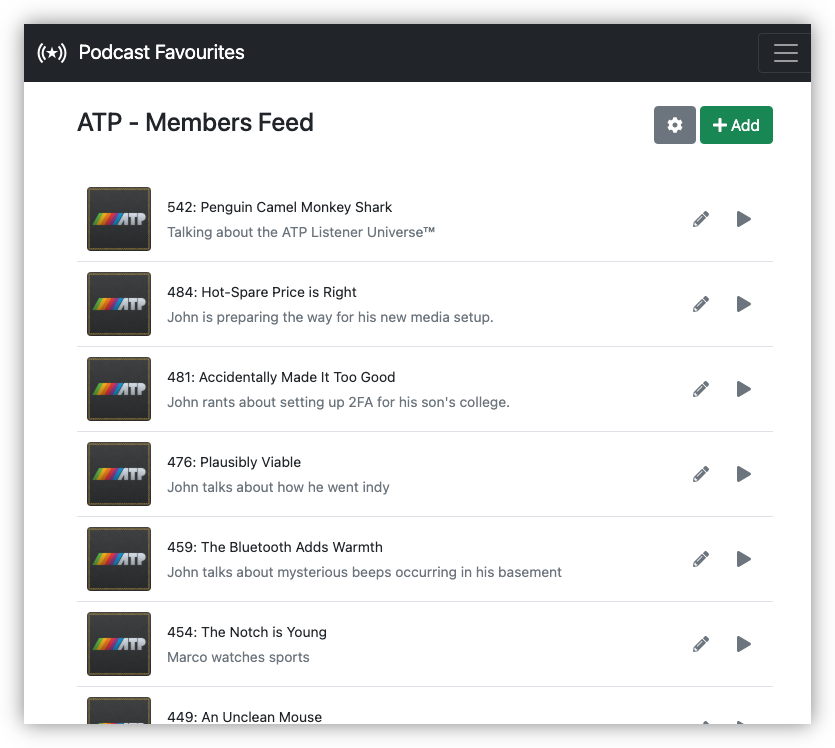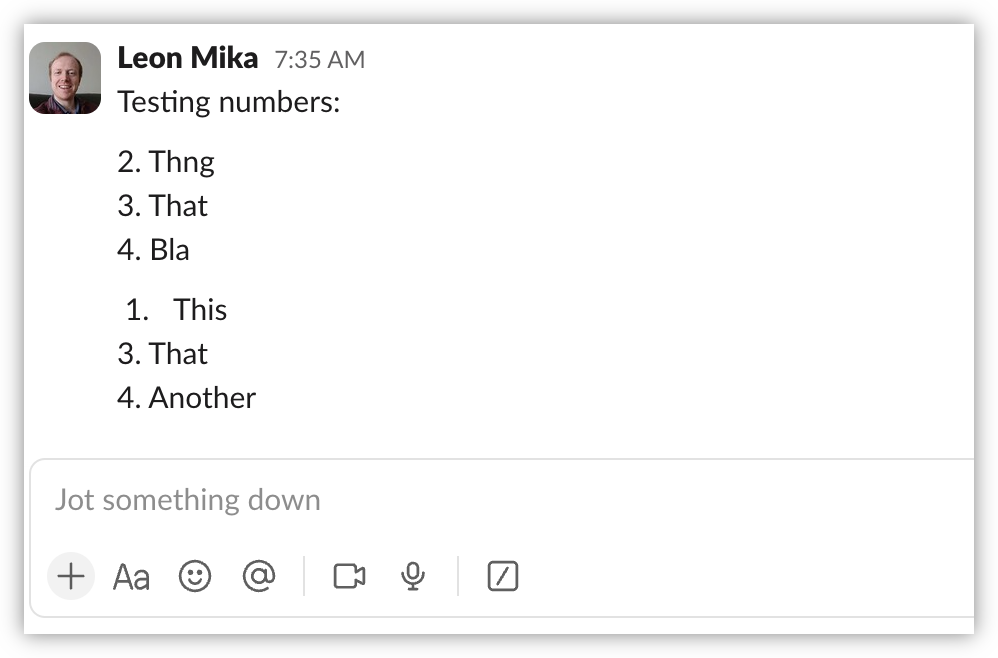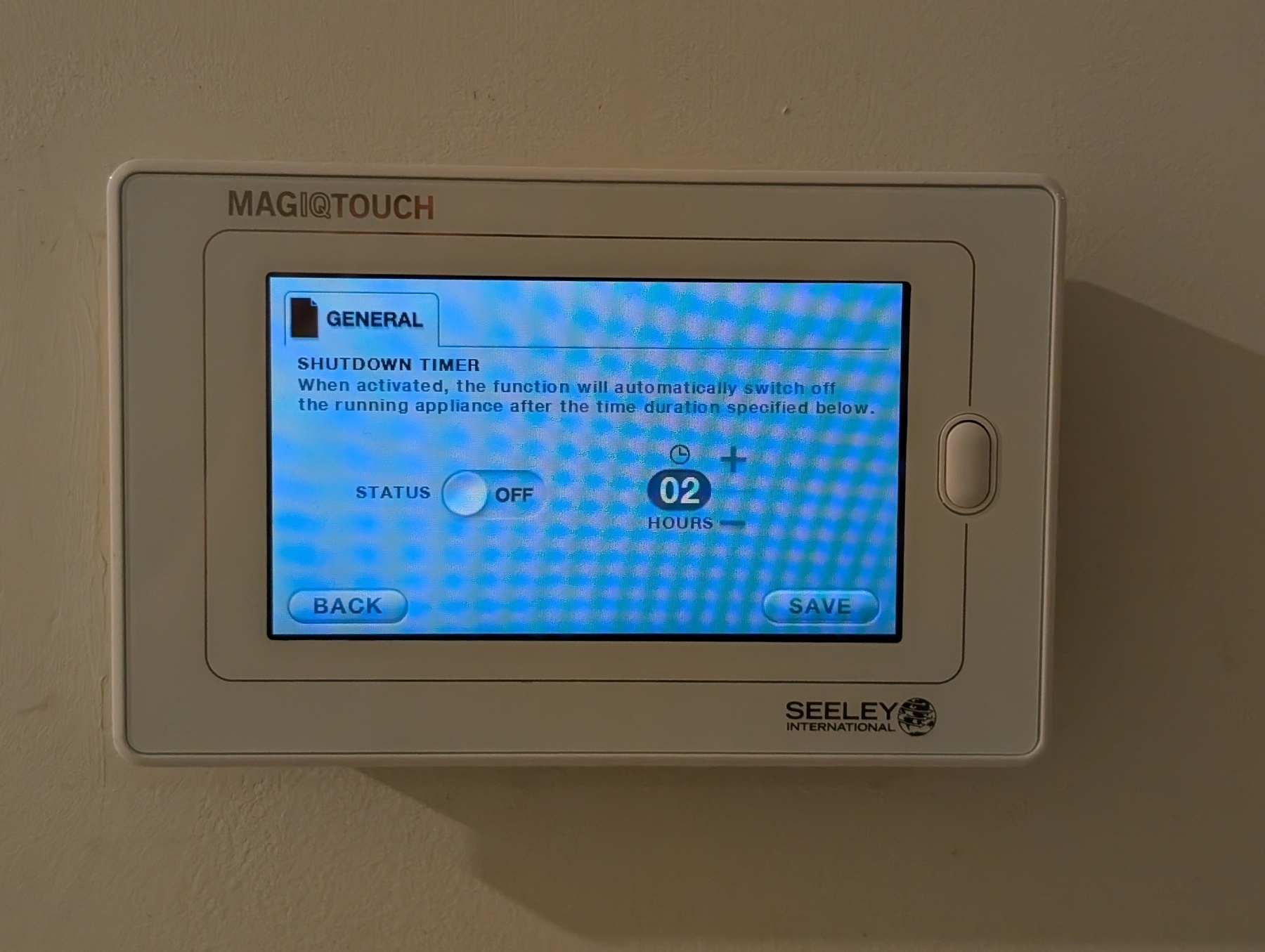-
Bad keyboard! Naughty keyboard! Causing all these spelling errors in your user’s last two posts. 😜
-
Seeing all these photos from those in the US with massive dumps of snow they need to shovel and clear makes me glad I live in a climate that doesn’t get snow.
-
I’ve never understood a task asking me to “find out what needs to be done.” These are not big tasks that need a design or prototype. They’re a regular size coding task, with the output being another task of the same size to actually do the work. Why not simply do the work in the first task?
-
Have pulled down the bit of fence extension that was falling down. I don’t think it was recoverable, or at least not with the wear it had endured plus my limited carpentry skills. But that’s fine. At least it’s neater now.


-
Dusted off Podcast Favourites (last commit 25 April 2022) and fixed a longstanding issue of thumbnails being lost when they’re changed in the feed. Editing the feed properties will now force a refresh of the thumbnail URLs. Didn’t need to change anything else, which was a nice change.

-
Ooh, what a milestone.
Today is 30 years since Delphi was launched, in February 14th of 1995.
— pikuma.com ([@pikuma.com](http://pikuma.com)) February 15, 2025 at 7:29 AM
[image or embed]I loved working in Delphi back in the day. I stopped after moving away from Windows and towards more cross-platform languages, but it always has a special place in my heart.
-
So sorry to hear about the loss of @merlinmann's pet lizard, which I just learnt is a central bearded dragon (they're good looking lizards). I didn't include it in the clip but he had some really nice things to say about it.
-
Kind of wish I can be more like Dave Winer and just write about what I’m working on without thinking too much about it. I spent the week moving posts about personal projects and questions are flowing through my head like, “should I be moving these posts? Would it better if they stayed here? Should I even be writing these posts at all?” I don’t know how this topic became such a source of doubt and indecision. I both want to write about it, and not want to write about it. I want readers to read it while also recognising that I’ll be the only one that would find any of this interesting. I want it to be a showcase of how I spent my days at the same time I want to burn it to the ground. In the grand scheme of things, this is small potatoes, yet it would be nice if I can come up with some answers to these questions.
Update at 21:25: I had a bit of a think, and a listen to Reconcilable Difference #254, and I think part of what was causing me to feel that this movement was wrong was that I was not making any forward motion. All that I was doing was cataloging the past. At this stage, I’m not sure that’s a good use of my time. So I’ve decided to not go ahead with moving all my project posts over there and continue to write about projects here. Sure it may make it more difficult to find them, but that’s okay. At least they’re documented somewhere.
Anyway, I’ve made some screenshots of what the site was to be. I do like the red colour.
-
Apple AI in Mail and What Could Be
Apple AI features in Mail currently do not help me. But they can, if Apple invited us to be more involved in what constitute an important email. Continue reading →
-
🔗 Prefer Numbered Lists to Bullets
Good arguments for using numbered listed instead of bullets in chat communication. I don’t disagree with any of them. I will say that tend to preferred bulleted lists simply because the chat apps I use tend to make using numbered lists more difficult than it should be. Slack, for example, only starts a “real” numbered list when it detects you type
1.. And once you’ve started, there’s no way to skip ordinals within the same numbered list.
Note that "1. This" the only "real" numbered list, and has a different appearance. Even Obsidian’s implementation is not perfect. Despite making it easy to start a numbered list at an arbitrary ordinal, it’s still not possible to skip ordinals.
It’d be simpler if they didn’t try to automatically make “real” numbered lists at all.
Via: Jim Nielsen
-
The Rules dialog in MacOS’s Mail needs some serious love. Aside from the fact that it’s teeny tiny, it’s also buggy. I couldn’t get the “set background colour” action to work, and selecting the condition to choose mail based on content doesn’t allow me to enter a value. Not good.
-
Well, damn! I ate something with peanuts today. That’s going to knock me about for the next few hours.
-
Here’s today’s face egging: my boss asked me to check if a list of countries we have included Åland Islands. Assuming that this list was in sorted order, I took a quick look at the countries beginning with A — conveniently at the top of the list — and came to the conclusion that the country wasn’t listed. Only after I told my boss that did I actually try to search for Åland Islands to double check, and sure enough: there it was, at the bottom of the list, right below Zimbabwe. Turns out the countries were sorted in code-point order, where Å comes after Z.
-
Request for any open-source projects that want to put banner ads on their site: please consider hard-coding the height of your banner to prevent the ad from reflowing the page. Otherwise, it may have an impact on the experience of those reading your docs.
-
Oh, that’s nice. Looks like Obsidian allows you to set the starting ordinal for numbered lists.
This was something I wish vanilla Markdown had for a while, so it’s good to see at least one Markdown editor embracing this.
-
First Impressions of the Cursor Editor
Trying out the Cursor editor to build a tool to move Micro.blog posts. Continue reading →
-
Playing Around With MacOS Image Playground
Trying out MacOS Image Playground. Continue reading →
-
Was a little concerned that I was running out of time to meet my “get out more” goal for February, until someone I used to work with pointed me towards a day-long dev conference. Bought a ticket then and there. So should be able to check off the goal for this month (if the fates allow).
-
Ok, I admit that I probably should’ve looked through the settings menu before writing a post, because it looks like my new cooler does has a shutoff after N hours feature. It also allows you to set the fan speed. Why it’s on page 2 of the settings menu is beyond me, but it’s there and it works.


-
We are destroying software telling new programmers: “Don’t reinvent the wheel!”. But, reinventing the wheel is how you learn how things work, and is the first step to make new, different wheels.
Wheels are not the same. If I need a wheel for a wheelbarrow, I don’t want to use a wheel for a tractor just because it exists. The same is true for software. If all I want to do is minify some JS without all the transpiling crap that comes from using React or Typescript, why not eschew Webpack for my own handwritten build scripts?
Via: Simon Willison
-
I thought the need to use these isolators — which, when opened, will shut off power in the overhead line flowing from north to south — was the reason why the train replacement busses are where they are. Turns out I was wrong, as these isolators are still closed. Must be some other reason.

-
So many people on bikes today. Have not seen this many cyclists in the park for a while. Guess the cool weather has brought people outside. 🚲
-
Moving all my project posts onto a separate blog… again. I tried writing them here, but I still feel like they belong elsewhere, where I have a bit more control over the layout and the design. Spent the morning configuring the theme, which was going to be orange but I had to change it to red as the orange didn’t provide a nice contrast for reading (you had to darken it almost to brown). I’m not sure if I’ll move the old posts over to it yet. Maybe the one’s on UCL.
Update on 14/2: No, changed my mind again. See this post.
-
UCL: Some Updates
Made a few minor changes to UCL. Well, actually, I made one large change. I’ve renamed the foreach builtin to for. I was originally planning to have a for loop that worked much like other languages: you have a variable, a start value, and an end value, and you’d just iterate over the loop until you reach the end. I don’t know how this would’ve looked, but I imagined something like this: Continue reading →



